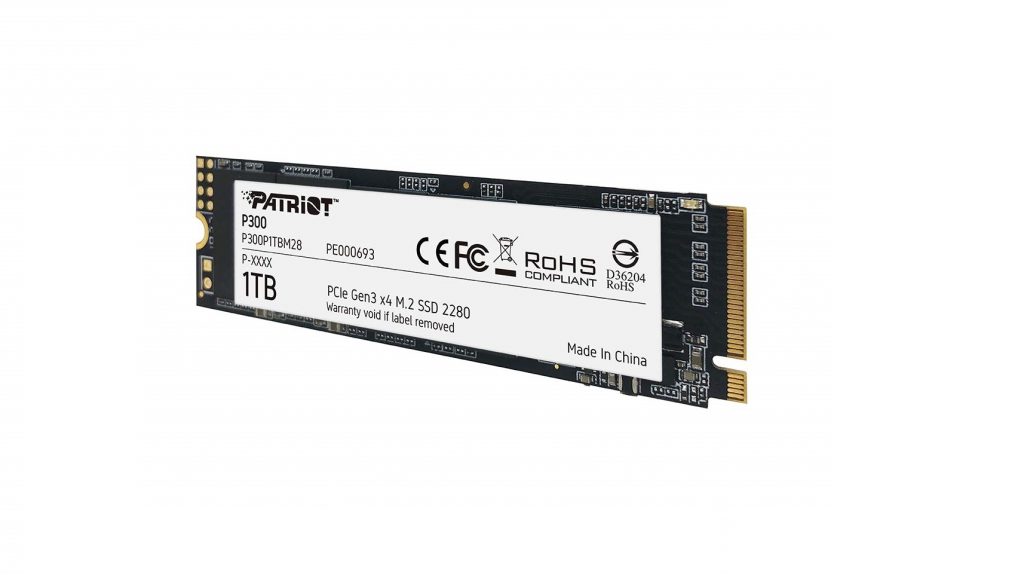Patriot has launched a new M.2 NVMe SSD series to provide reliable all-round performance for budget-focused desktop and laptop systems. The new P300 series claims to offer higher transfer speeds over traditional PCIe 3 x2 solutions.
Being built on the latest PCIe Gen3 x4 controller technology, the new P300 series of M.2 NVMe SSDs from Patriot offers sequential read speeds of up to 2,100MB/s and sequential writes of up to 1,650MB/s, with a maximum capacity of 1Tb. P300 SSDs are also available in 256GB and 512GB versions with slightly reduced read/write speeds of 1,700MB/s and up to 1,200MB/s respectively.
A space-saving design with no additional heatsink means the P300 can fit in almost any system form factor. Due to this slim design, the P300 series will easily install inside even the thinnest laptops and small form factor desktop machines. Built with the latest DRAMless controller and 3DNAND flash means the P300 series is more affordable to manufacture, which makes it the ideal choice for budget systems builds.
An advanced firmware combined with powerful LDPC (low-density parity-check) ECC algorithm, ensures sensitive user data stored on the P300 series SSDs is kept secure and safe from corruption, as well as allowing peak performance and lower system power consumption. P300 also supports APST, ASPM and L1.2 power saving modes to maximise battery life in laptops and support for Advanced Wear Levelling prolongs the lifespan of the NAND flash.
The Patriot P300 SSD series is available to purchase now, backed by a 3-year manufacturers warranty, with prices starting from £41.99 for the 256GB version currently on Amazon.
KitGuru says: This new series of NVMe M.2 SSDs from Patriot offers good performance at a reasonable price, but only up to 1TB capacity. Would you guys like to see more affordable higher capacity M.2 SSDs being made available in 2020?
 KitGuru KitGuru.net – Tech News | Hardware News | Hardware Reviews | IOS | Mobile | Gaming | Graphics Cards
KitGuru KitGuru.net – Tech News | Hardware News | Hardware Reviews | IOS | Mobile | Gaming | Graphics Cards



